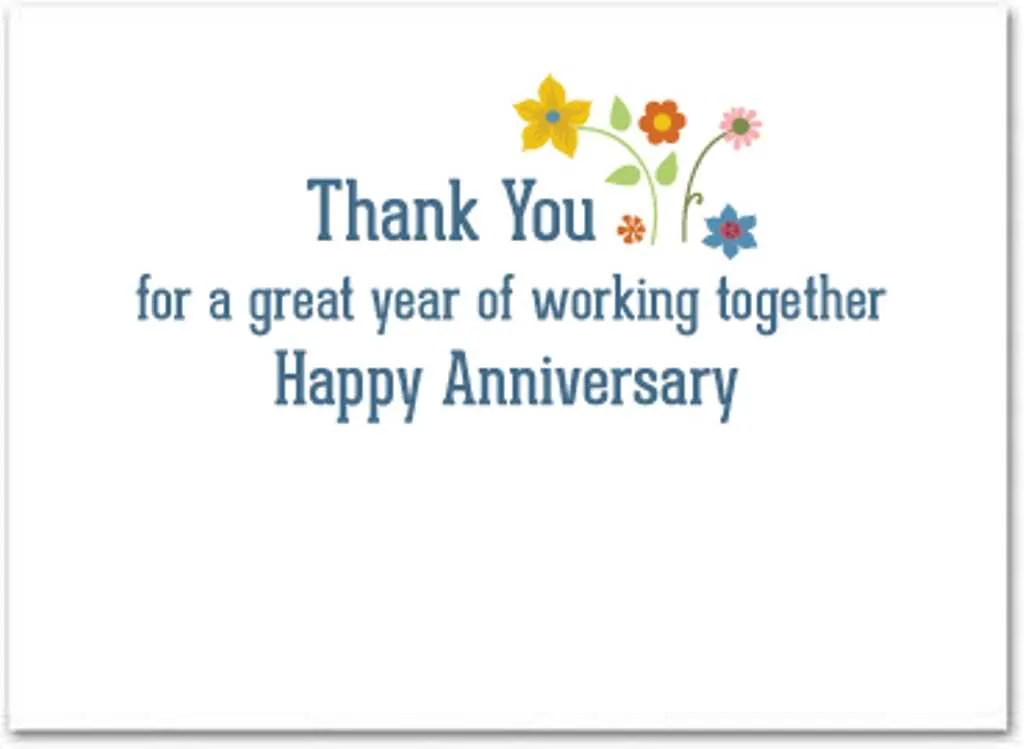Crafting the Perfect Work Anniversary Email Message for Any Occasion

Sending a work anniversary email is a simple yet powerful way to show appreciation for your colleagues’ contributions. A well-crafted message helps to recognize their hard work and commitment. It’s important to keep the tone personal and acknowledge the specific milestones achieved during their time at the company.
Start your email by congratulating the person on reaching this important milestone. Acknowledge the time they’ve spent in their role and highlight specific accomplishments. This approach not only makes the message feel sincere but also reinforces their value to the team.
In the body of your email, you can add a personal touch by recalling a memorable moment or project the person was involved in. Acknowledging their growth and how they’ve contributed to the company’s success builds a positive connection and motivates them to continue excelling.
Don’t forget to express gratitude for their continued dedication. It’s important to show your genuine appreciation, as this can strengthen workplace relationships and encourage employee loyalty. Ending your email with a friendly note or invitation to celebrate their success, whether in-person or virtually, is a great way to wrap it up.
Keep it brief but heartfelt–an email that’s too long may feel overwhelming, while a short one might come off as impersonal.
Work Anniversary Email Message
Keep your work anniversary email short, genuine, and personal. Acknowledge the individual’s achievements over the past year, and express gratitude for their contributions to the team. Start with a warm opening that highlights their value, followed by specific examples of their impact.
For example, “Congratulations on your one-year anniversary with the company! You’ve made a significant difference through your dedication and hard work. Your leadership on [specific project] has been particularly inspiring, and your commitment to [team goal or company value] is highly appreciated.”
Close by looking forward to more successful collaborations ahead. Encourage continued growth with a positive and encouraging note, like “We’re excited to see what the future holds and look forward to achieving even more together.”
End with a personalized sign-off. A casual and friendly tone helps reinforce the positive atmosphere. “Best regards,” or “Warm wishes” are excellent choices, depending on the company culture.
How to Craft a Personalized Message for Employee Work Anniversaries
Begin with a direct acknowledgment of the milestone. Mention the number of years the employee has been with the company and express appreciation for their dedication during that time.
Highlight their specific contributions. Focus on accomplishments or projects that made a significant impact on the team or the company. Recognize their unique skills or qualities that set them apart.
Share personal reflections. If possible, reference a memorable moment or an instance where the employee exceeded expectations. This personal touch can make the message feel more genuine and tailored to their experience.
Keep it positive and forward-thinking. Convey excitement for the future and express confidence in their continued growth and success within the company.
End with a warm note of appreciation. Thank them for their hard work and commitment, and emphasize how much they are valued as part of the team.
Key Phrases to Include in a Meaningful Work Anniversary Email
Recognize the impact of the individual by highlighting their contribution to the team and the company. Use phrases like “Your dedication has made a real difference this year” or “You consistently exceed expectations in your role.” These statements reflect genuine appreciation and acknowledge their consistent hard work.
Celebrate the milestones with statements such as “Congratulations on reaching this impressive milestone” or “It’s been a rewarding year with you as part of the team.” Acknowledging the time spent adds a personal touch and reinforces their value within the organization.
Express gratitude in a specific way, for example: “We are grateful for your dedication and teamwork throughout the year” or “Your ability to tackle challenges head-on is inspiring.” These phrases show appreciation beyond just saying “thank you” and highlight the individual’s strengths.
Incorporate future-focused language to show continued support: “Looking forward to many more years of success together” or “Excited to see what the next year will bring with you on the team.” This helps create a sense of growth and forward momentum.
Finally, personalize your message by including something specific about their contributions: “Your innovative ideas during the XYZ project have been invaluable” or “Your positive attitude in the office makes a difference every day.” Specificity reinforces the sincerity of the recognition.
When to Send a Work Anniversary Email and How to Time It Right
Send a work anniversary email a few days before the actual date, ideally on the work anniversary eve. This ensures that the employee feels acknowledged in a timely manner without missing the special occasion.
- Consider the Employee’s Schedule: If the employee typically takes time off or has specific busy periods, avoid sending the email during those times. Choose a moment when the employee is most likely to be present at work and in a positive mood.
- Keep the Message Personal: Tailor the timing and tone of the message based on your relationship with the employee. A formal approach may work better for some, while others may appreciate a more casual note.
- Avoid Last-Minute Emails: Don’t wait until the last minute to send the email. Sending it too close to the date can feel rushed and less meaningful. Aim for a delivery window that gives the recipient time to reflect and feel valued.
- Consider Milestones: If the anniversary marks a significant milestone, such as five or ten years, the email may warrant a more elaborate message. These emails should be sent a bit earlier to allow time for any special recognition or celebration.
By timing the email correctly, you can show your appreciation without it feeling impersonal or overlooked.